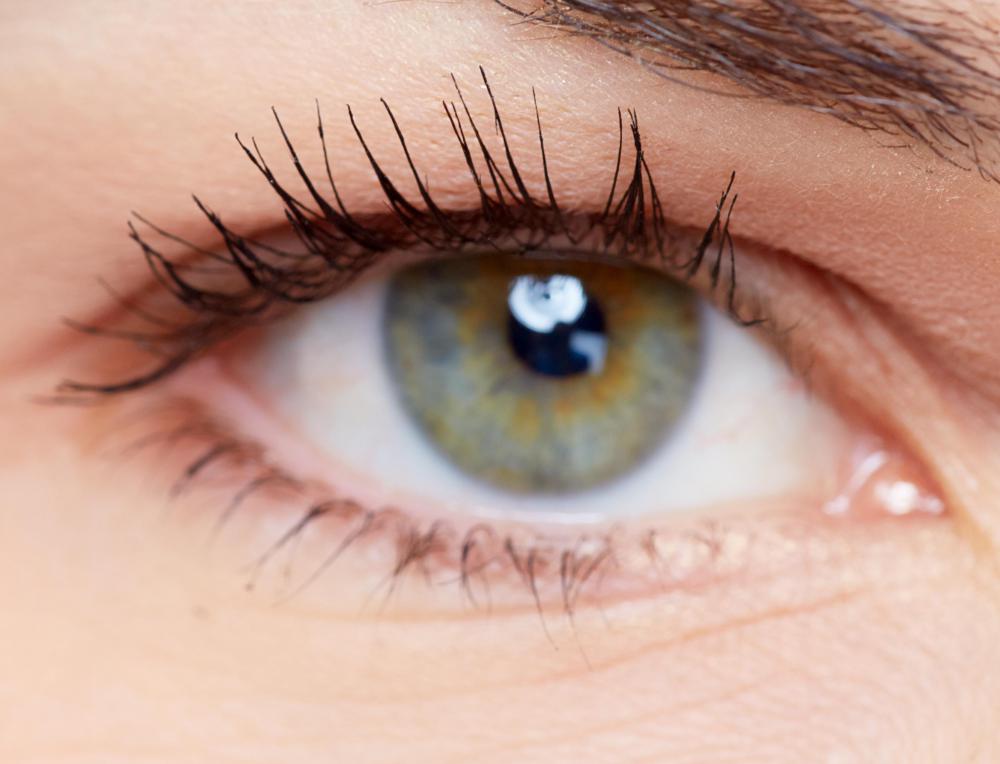At TheHealthBoard, we're committed to delivering accurate, trustworthy information. Our expert-authored content is rigorously fact-checked and sourced from credible authorities. Discover how we uphold the highest standards in providing you with reliable knowledge.
What is Genetics?
Genetics is the study of biological inheritance. Geneticists examine a wide variety of inherited traits, from the ability to bear large numbers of fruit in trees, to eye color in mammals. This discipline is a major cornerstone of the larger field of biology. People who study it do so in a wide variety of situations, from research laboratories to pharmaceutical companies, and new breakthroughs are consistently being made.
Humans have understood genetics on some level for thousands of years. They have been improving crops and animals through breeding for quite some time, selecting desirable traits and attempting to propagate them. Casual observations have also been an important part of human life for thousands of years, with people noting that members of certain families tend to have distinctive anatomical features. The Hapsburgs of Austria, for example, are famous for their prognathic jaws.

In the 1800s, a monk named Gregor Mendel began doing controlled experiments with peas which were designed to unravel the mysteries of gene inheritance. He is often regarded as the father of modern genetics, because although he was not able to identify individual genes, he did demonstrate that a combination of dominant and recessive traits determine the physical appearance of an organism. In the 1950s, research finally revealed that DNA in the chromosomes carried the genetic code of the host organism.

With the confirmation that DNA held the secret to inheritance, people also started charting the genetic code, finding the specific locations on the chromosomes where certain genes appeared. Along the way, they learned a great deal about DNA and inheritance, and the DNA code is continually being studied to identify new genes. Understanding this coding has allowed researchers to manipulate it, removing or altering sections to create a specific desired outcome, such as a crop that is resistant to pests. Knowledge of the human genetic code has also led to gene therapy, in which specific problems are addressed or prevented by manipulating the code of an individual.

The study of this field doesn't just explain the manifestation of physical traits like hair color. Genetics is also used to explore inherited disease, and to determine whether or not people are more susceptible to certain diseases because of their genes. The discipline also involves what happens when things go wrong, as in the case of an organism that inherits an extra chromosome. Some people have also theorized that genes may play a role in behavior, with certain people being predisposed to depression, addiction, and other behavioral issues.
AS FEATURED ON:
AS FEATURED ON:
















Discussion Comments
this is good and all, but you will never be able to figure everything out. We are just not God, my thoughts on trying to perfect every little thing the human mind tries to figure out? Just leave that 1 percent alone.
@ Georgesplane- A few years past the turn of the millennium, scientists from the U.S Department of Energy, the National Human Genome Research Institute, and the International Human genome Sequencing Consortium completed the mapping of the human genome. The Human Genome is the map of human genetics; a complete list of the 3 billion base pairs that make up human DNA.
The mapping and sequencing of the genome is 99% complete, but scientists are still working on determining what every gene does (the other 1% cannot be mapped until new technologies are invented). As scientists learn more about the purpose of the different base pairs and genes, they will be able to develop better drugs, create better diagnostic tools, and better manage genetic diseases.
Just like anything else, though, the understanding of genetics can open the window for potential harm. With the advancement of bioengineering, comes the potential for bioengineered threats. This is why the bulletin of Atomic Scientists have added biosecurity to the list of threats monitored in the overview of the doomsday clock.
What is the Human Genome? Is this part of the study of genetics? If so, has the government or researchers finished mapping the Human Genome? Additionally, what is the significance of the Human Genome? Is it going to allow us to change our genetics, or…what exactly is the genome going to be used for?
The study of human haplogroup population genetics focuses on tracing haplogroups of Y-chromosome (paternal) and mitochondrial (maternal) DNA. This study shows a very high amount of commonalities in haplogroups among people groups of surprising geographic distance. This field, although still advancing from its early stages, indicates a common ancestor for all human beings (Mitochondrial Eve) from whom all mitochondrial DNA is derived.
In the past, geneticists have made the fatal error of assigning value to certain traits over others and assuming an inequity in the quality of life based on which genes a person has inherited. Such misconceptions led to Eugenics and the belief in Racial Superiority. It is helpful to recognize the fact that, although genes differ, they allow us humans to complement each other very well, with a recognition that greater diversity is both effective and beautiful.
Post your comments